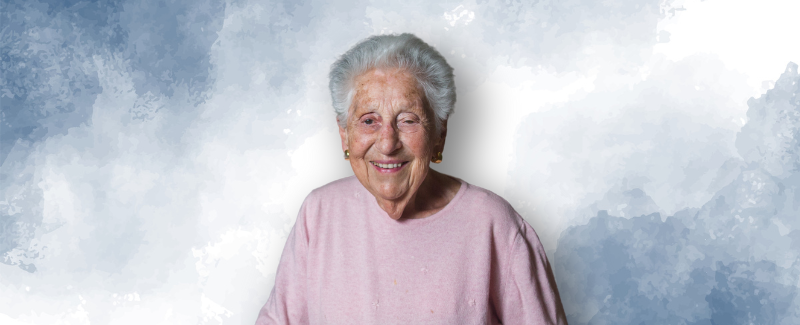Israeli Scene
Personality
Alice Shalvi, the Mother of Israeli Feminism

Alice Shalvi, often called the mother of Israeli feminism, grew up along with the modern State of Israel. She emigrated from England to the nascent Jewish nation in 1949, the year after independence was declared. Her life, like the country that became her home, took some unexpected twists but she achieved tremendous stature as a longtime professor of English literature at the Hebrew University of Jerusalem; the principal of Pelech, a prestigious and progressive high school for Orthodox girls in Jerusalem; and as founding chair of the Israel Women’s Network, which became Israel’s leading advocacy group on women’s issues.
Now, at the age of 97, the 2007 recipient of the Israel Prize for Lifetime Achievement has a rare perch from which to assess the country’s achievements, and its challenges. Extolling her blessings as the matriarch of a large family—six children (one deceased), 21 grandchildren and 26 great-grandchildren—Shalvi spoke in a Zoom interview from her home in Jerusalem. This interview has been edited for brevity and clarity.
What has been Israel’s greatest accomplishment?
Raising up generations of children, including my own, who never suffered from fellow pupils calling them “dirty Jew” the way I did. And they were free to be Jews in any manner they wanted to be.
Did you ever imagine that you would become the mother of Israeli feminism?
No. I didn’t think that feminist activity was needed for a long time because at Hebrew University, where I taught, we were blessed with a head of department who was totally egalitarian. But I came to learn that there was inequality in wages, in the military and elsewhere. We set out to revolutionize the status of women in Israel through consciousness-raising, lobbying, legislation and litigation.
 Missed our webinar? Watch the recording here.
Missed our webinar? Watch the recording here.
What was the most significant achievement of the Israel Women’s Network?
Our most significant achievement was in drawing women’s attention to the anomalies in pay between women and men and other forms of discrimination. And the fact that women no longer felt ashamed of the term
“feminist.” They no longer believed we already had equality. Even on the kibbutzim, where everything was supposed to be equal, the women were doing on a grand scale what any housewife was doing—they were in the children’s homes and in the kitchen.
What are the biggest challenges that remain for women?
There’s still a lot more to be done—look at the few women in the government today. There’s been enormous progress, all over the world, with women doing significant work from which they were excluded in
the past. But we are still very much professionally divided along gender roles. As long as women are the ones who bear the children, that’s not going to change. Unfortunately, society doesn’t sufficiently value the child carers and how much they are contributing to the economy by raising the children.
What worries you most about the country today?
That Israel is an occupying power; we’ve been corrupted by ruling over another nation. There won’t be a solution until the Palestinians have a state of their own and I wish Israel would realize that and stop building in the West Bank.
We’ve also become very materialistic as a society. One tends to idealize the past, but I think it was better when we didn’t have all these luxury goods, which enables the distinctions between one set of income earners and another.
What is your hope for Israel over the next 75 years?
I want the country to be a truly Jewish state, with everything that implies as far as moral values are concerned. As the Torah says: Ve’ahavta le’reyacha kamocha (“Love your neighbor as yourself”) whether your neighbor is Ashkenazi or Sephardi or Palestinian or Ethiopian.
I’m distressed that there is so much internal division. If I were a fairy godmother and could do one positive thing, it would be to eliminate sinat chinam (baseless hatred) among Israelis.
Lisa Hostein is the executive editor of Hadassah Magazine.











 Facebook
Facebook Instagram
Instagram Twitter
Twitter
Ann Weiss says
How utterly fantastic, Lisa!!–Both this thought-provoking Israel discussion, your excellent, probing questions and the extraordinary Hadassah programs you consistently offer. I feel fortunate to be a lifelong Hadassah member (an honor given to me after I gave a speech for Hadassah), to be an audience member and to be your friend! Many thanks for sharing this with your Beth Am community.